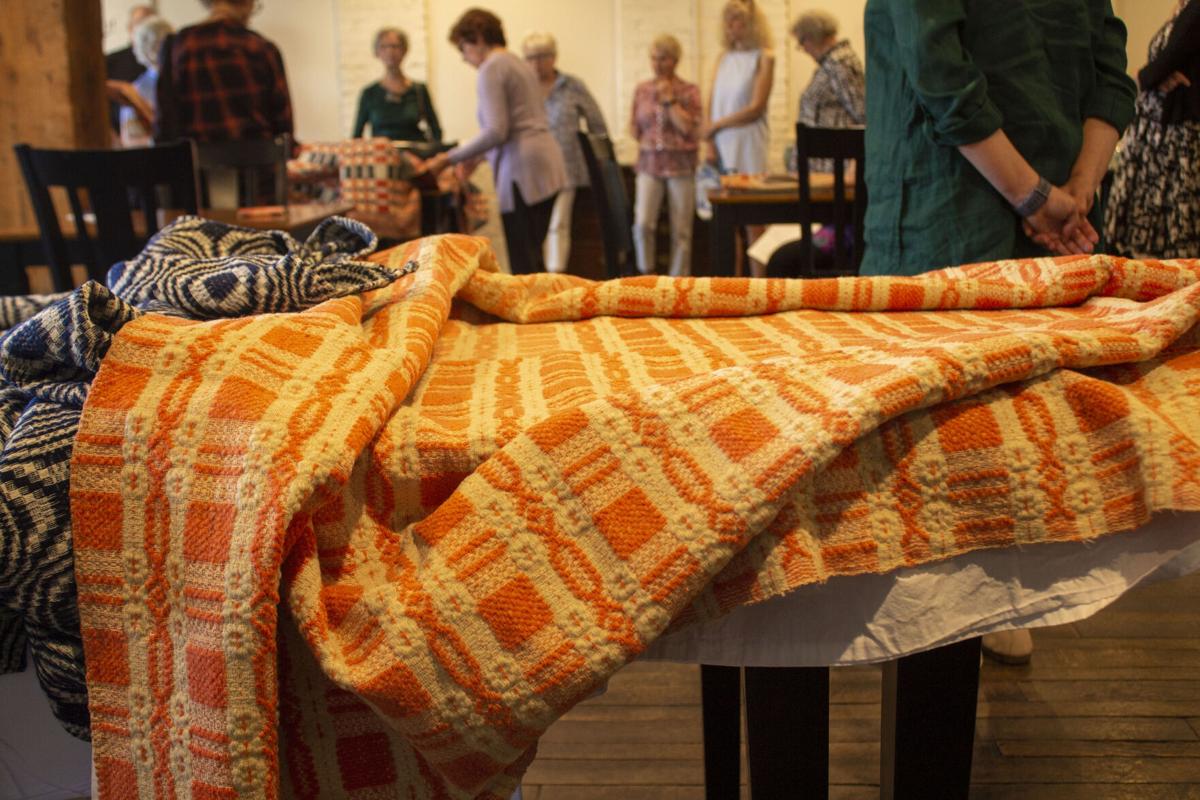[ad_1]

Appalachian textiles historian Kathleen Curtis Wilson (center, background) visited Christiansburg Thursday to evaluate antique coverlets as part of a fundraiser for the Montgomery Museum of Art and History.
Tonia Moxley
Appalachian textile historian Kathleen Curtis Wilson evaluates a 19th century hand-woven coverlet at a fundraiser for the Montgomery Museum of Art and History. Proceeds will benefit the museum. Tonia Moxley/The Roanoke Times
The elaborate fabrics gracing the Mockingbird Cafe dining tables Thursday in Christiansburg weren’t the normal restaurant linens.
They were instead 19th century coverlets spread out for the inspection of Kathleen Curtis Wilson, a historian of Appalachian textiles visiting from California.
The event, which invited owners of antique coverlets to bring them in for Wilson’s assessment was a fundraiser for the Montgomery Museum of Art and History. Wilson was in many cases able to date the textiles and describe how they were made.
Last year, Wilson who has studied and written about historical textiles for 35 years evaluated a rare coverlet donated to the museum in 2018 that is thought to be one of the only authenticated slave-made coverlets in Virginia.
Woven from hand-spun cotton and hand-dyed wool in a variation of the Pine Cone Bloom pattern, the coverlet was probably made on a barn loom by a woman owned by Catherine Montague Trigg sometime between 1850 and the end of the Civil War.
It was passed down through the Trigg family, which owned a large antebellum plantation near present-day Christiansburg. Trigg descendants donated it to the museum in 2018, curator Sherry Wyatt has said.
Wilson also worked with Bath County native Perlista Henry to authenticate two quilts sewn by her great-grandmother Elizabeth Bolden. Bolden was an African-American seamstress whose mother was born a slave at Fort Dinwiddie Farm in Warm Springs. Bolden, born after emancipation was educated and ran her own dressmaking business.
[ad_2]
Source link







